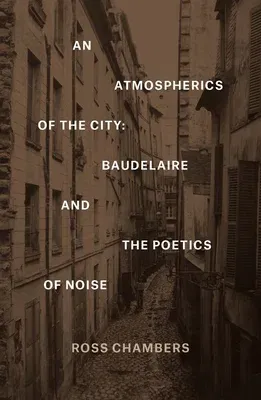What happens to poetic beauty when history turns the poet from one who
contemplates natural beauty and the sublime to one who attempts to
reconcile the practice of art with the hustle and noise of the city?
An Atmospherics of the City traces Charles Baudelaire's evolution from
a writer who practices a form of fetishizing aesthetics in which poetry
works to beautify the ordinary to one who perceives background noise and
disorder-the city's version of a transcendent atmosphere-as evidence of
the malign work of a transcendent god of time, history, and ultimate
destruction.
Analyzing this shift, particularly as evidenced in Tableaux parisiens
and Le Spleen de Paris, Ross Chambers shows how Baudelaire's
disenchantment with the politics of his day and the coincident rise of
overpopulation, poverty, and Haussmann's modernization of Paris
influenced the poet's work to conceive a poetry of allegory, one with
the power to alert and disalienate its otherwise inattentive reader
whose senses have long been dulled by the din of his environment.
Providing a completely new and original understanding of both
Baudelaire's ethics and his aesthetics, Chambers reveals how the shift
from themes of the supernatural in Baudelaire to ones of alienation
allowed a new way for him to articulate and for his fellow Parisians to
comprehend the rapidly changing conditions of the city and, in the
process, to invent a "modern beauty" from the realm of suffering and the
abject as they embodied forms of urban experience.

